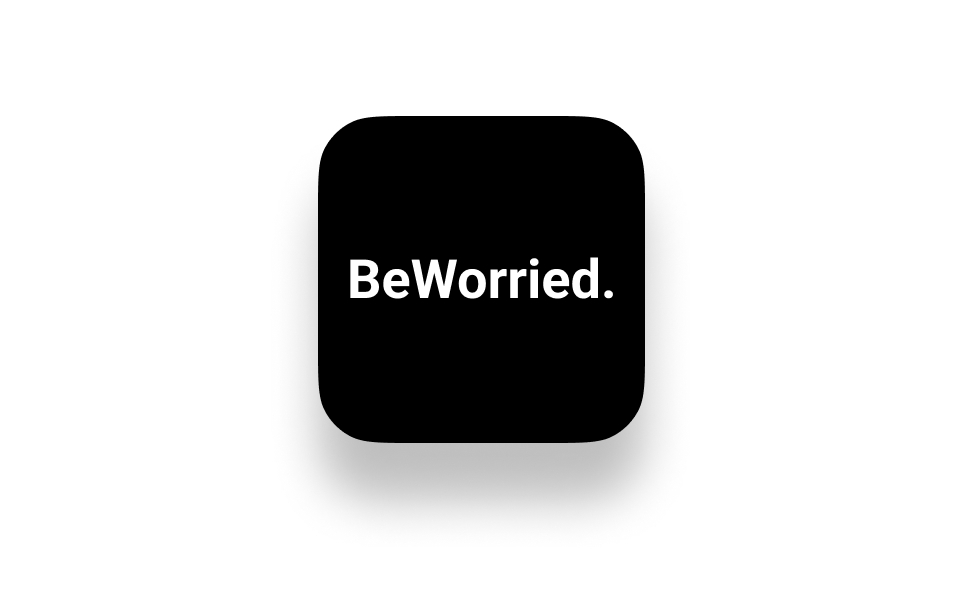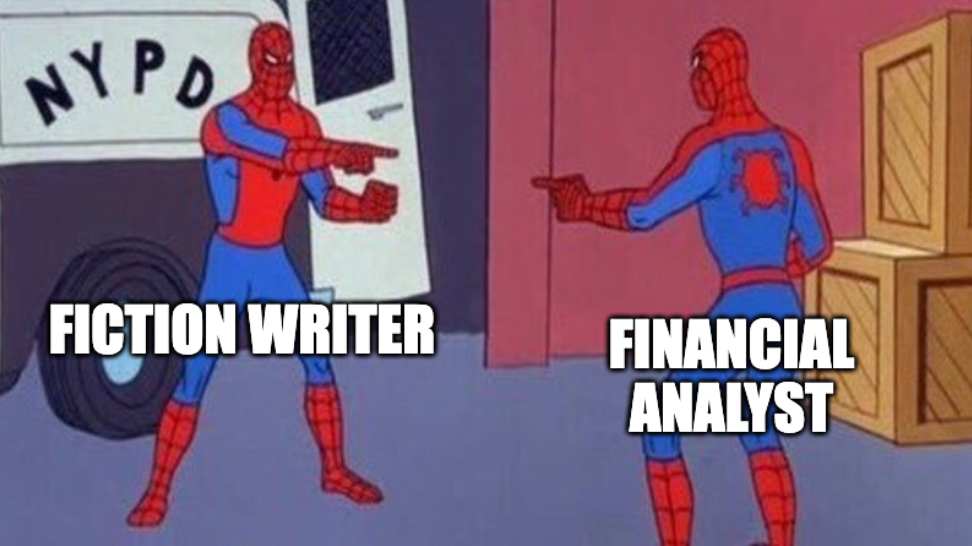
Finance is Narrative and More
Here’s everything we published this week.
August 27, 2022 · Updated January 29, 2026
Knowledge Partner: McKinsey & Company
Using anxiety to your advantage. How can we reclaim our relationship with anxiety, so it works for us, not against us? A healthy outlook on anxiety means viewing it as a part of being human, not as a problem to solve, says Dr. Tracy Dennis-Tiwary in a new interview about how you can make anxiety your ally.
Happy Sunday!
This week, we’ve got words on finance as narrative, a framework for thinking about writing, and BeReal’s potential Achilles heel. But first:
In case you missed it, Every recently launched a talent collective. It’s a community of the smartest people in tech, all open to their next big opportunity. Maybe that opportunity is with your company? If you’re a hiring manager in search of talent, we’d love to invite you to check out the community. Your next great hire could be waiting for you!
Now, on to this week’s posts!
Time to BeWorried
Nathan Baschez / Divinations
With any new social media app, the inevitable question that must be asked is, “Could Meta copy this?” In the case of new rising social star BeReal, the answer is yes.
The reason comes down to what, exactly, BeReal has built—and what it hasn’t. The feature set may be unique, but the network underlying that feature set isn’t. This week on Divinations, Nathan explains why that’s a crucial distinction.
Finance is Narrative Not Numbers
Evan Armstrong / Napkin Math
Working in business without knowing finance is a bit like going to a foreign country without speaking the language. You might be able to fumble your way around, but to truly navigate successfully, you need to know the native tongue.
And in the case of finance, the language you need to be fluent in isn’t just numbers and a flurry of acronyms—it’s the narrative that ties all of those disparate pieces together into a larger story. This week on Napkin Math, Evan lays out the idea that he’s been circling for the last 18 months of writing: “Finance is the practice of narrative, not numbers. By using finance to tell the story of your company, you win at the game of business.”
Writing is a Tool for Making New Ideas
Eliot Peper / Every
From grade school on, we’re trained to think about writing a certain way. Were taught that it happens methodically, every point planned in advance and plotted out with precision. In this post, guest writer and novelist Eliot Peper lays out a different approach: one where you discover what you’re writing as you write it—word by word, sentence by sentence, idea by idea.
Why the Ethereum Merge is a Big Deal
Nat Eliason / Almanack
Anyone who spends time in the crypto realm has probably heard of a big upcoming event called The Merge. It’s arguably the biggest thing to happen in the crypto space since the launch of Ethereum itself.
The TL;DR is that Ethereum is finally completing its intended transition from Proof of Work-based security protocols to Proof of Stake. But what does that mean, exactly? What are its benefits and, just as importantly, its potential drawbacks? Nat breaks it all down in this week’s edition of Almanack.
A Business Insight for the Day
From Evan Armstrong
There are relatively few infrastructure plays going on in the tech sector today. This is a bummer. While it is always fun to update your productivity apps, the more grimy work of building out physical capacity is what unlocks fundamentally new digital capabilities. One of the most interesting ones is SpaceX and Amazon/Blue Origin building out new satellite internet networks.
This is a sector I’m relatively unfamiliar with so I turned to Tegus to learn more. This conversation with a CEO/operator of a satellite network especially relevant with TMobile and SpaceX announcing a partnership last week.
Tegus Client: So I've done a decent amount of work, and it seems like you can get really low cost per gigabit with GEOs, and it seems like there's a clear hierarchy of which GEOs [geostationary satellites] are most effective. And some of the back of the envelope math I've seen is all the LEO [low earth orbit satellites] constellations are a bit more expensive than the cheapest GEO player. But what are some ways that a LEO could get that cost to where they're cost competitive with a GEO? Or is it possible?
Chief Executive Officer: Yes. So that's a very interesting point. So if you take a look at the economics of space, there's multiple factors. For a GEO, it's the cost of the GEO itself and then there's the launch. And a satellite consists of the money-paying payload plus the bus. And so if you're going to have the bus overhead anyway, the economics prove that you want to put as big of a satellite as you can into an orbital slot.
So that's why GEOs will always have an advantage in that path. And like ViaSat-3 and JUPITER 3 from Hughes, they're probably going to be the most cost-effective bandwidth out there. That remains to be seen because they are a little bit more expensive birds, so that you got that problem. The benefit of LEO is you can have a smaller satellite, the link budget is that much better. Therefore, you have less power and ultimately less mass.
The problem is you need so many satellites to create a constellation to cover any given area that you end up far exceeding the cost of a GEO or even a GEO constellation like ViaSat-3 is talking about three or four birds, and Inmarsat has got four or five up there. It's really difficult to hit those economics. Now I got to hand it to SpaceX…But they came out and being vertically integrated when you own the launch is key. OneWeb was paying on the order of $12,500 per kilogram to get launched and SpaceX's cost for their launches is probably less than $2,000, probably $1,500 a kilogram, something like that. That really changes the game significantly. And they're manufacturing their own satellites. OneWeb did a fantastic job. They had a satellite that ultimately ended up to be just over $1 million cost, which is unheard of. It changed the industry.
A Few More Recommendations
A Manager’s Guide to Helping Teams Face Down Uncertainty, Burnout and Perfectionism | First Round Review
Liz Fosslien and Mollie West Duffy wrote the book on how to deal with tough feelings—literally. It’s called “BIg Feelings: How to Be Okay When Things Are Not Okay.” So who better to share insights on how to handle big feelings like uncertainty, burnout, and perfectionism when they pop up in the workplace? Fosslien and Duffy share their insights in this post from the First Round Review.
The Reluctant Prophet of Effective Altruism | The New Yorker
Adherents to effective altruism believe that “people ought to do good in the most clear-sighted, ambitious, and unsentimental way possible.” It’s a philosophy that has gained popularity everywhere from Silicon Valley to the leading charities in the world. William MacKaskill is one of the leading luminaries of the movement. This profile of MacKaskill explores the origins of effective altruism, its tenets—and its limitations.
Wireheading Done Right| Qualia Computing
Wireheads are people who are happy all the time. More specifically, they’re people who have rewired the reward architecture in their brains to enable them to sustain positive emotions. But how is that possible without driving yourself a little crazy? The answer has to do with a combination of psychological, chemical, electrical and genetic methods, as this in-depth essay explores.
That's all for this week!
The Only Subscription
You Need to
Stay at the
Edge of AI
The essential toolkit for those shaping the future
"This might be the best value you
can get from an AI subscription."
- Jay S.
Join 100,000+ leaders, builders, and innovators

Email address
Already have an account? Sign in
What is included in a subscription?
Daily insights from AI pioneers + early access to powerful AI tools










Comments
Don't have an account? Sign up!